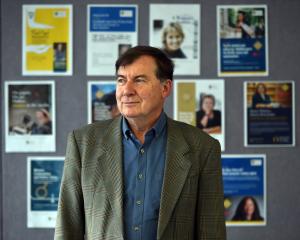
Plans for a third medical school have now passed their first hurdle.
Health Minister Dr Shane Reti announced on Saturday an initial cost-benefit analysis of establishing a third medical school had been completed and had been found to provide "confidence for the project to progress to the next stage".
Earlier this year, the Ministry of Health signed a memorandum of understanding with the University of Waikato about a potential third school and began working through the necessary steps to ensure the best training model could be developed.
Dr Reti said this included a cost-benefit analysis to give everyone initial assurance of the feasibility of the programme.
"The cost-benefit analysis is encouraging. However, there is still a significant amount of material to be considered and assumptions to be tested around this major project."
During the 2023 general election campaign, National campaigned on a third medical school to be based at the University of Waikato.
The third medical school would have a focus on training rural GPs.
It would receive about $300 million in government funding to get it off the ground and ready for its first intake in 2027.
But as part of its coalition agreement with Act New Zealand, the National Party agreed "a full cost-benefit analysis must be presented before any binding agreement is made".
The Universities of Otago and Auckland recently told the government they could train up to 300 additional doctors annually, without the need to establish a third medical school.
Otago Medical School acting dean Prof Tim Wilkinson said the University of Otago still believed it was far more cost-effective and efficient to train more doctors in the two existing medical schools, rather than incurring significant costs that would be associated with establishing a new one.
"The recently released PwC report, Medical Education in New Zealand: Current State and Consideration of Future Options, highlights the country’s existing medical training programmes at both Otago and Auckland Universities have the capacity to train hundreds more doctors.
"We just need the government to increase the cap on the number of training places available.

"At a time when government resources are constrained, especially in the health system, this proposal simply does not stack up.
"The decision to go ahead with this project is still to be made, and we will continue to strongly put forward our views and alternatives," he said.
Dunedin MP Rachel Brooking said the timing of Dr Reti’s announcement was a "very cynical move" — as it was released as the march for the new Dunedin hospital was about to take place.
"It’s a pet project for Dr Reti.
"Auckland and Dunedin have said that they can do it sooner and cheaper in terms of pumping out new doctors."
The government set aside about $5m over two years for the business case for the third medical school in this year’s Budget.
“A detailed business case, in addition to the full cost-benefit analysis, is the appropriate vehicle to answer these questions," Dr Reti said.
“I expect the Ministry of Health to continue to lead this process on behalf of the government, working closely with Waikato.
“Any further announcements can be expected following completion of the business case. This will be thorough and expected to take some time."
In Budget 2024, the government confirmed 25 additional medical places for 2025, half of the 50 previously promised.
Dr Reti said New Zealand’s existing medical schools were top quality and had immediately benefited from increased places at both universities this year.
“However, stats also tell us many GPs are planning to retire in the next 10 years, which will particularly impact provincial and rural communities already experiencing New Zealand’s biggest doctor shortages."
Waikato University vice-chancellor Prof Neil Quigley said Waikato was well-placed to deliver a new medical school and had widespread stakeholder support to do so.
“We look forward to continuing to work with the government on the processes required to facilitate the medical school.”












